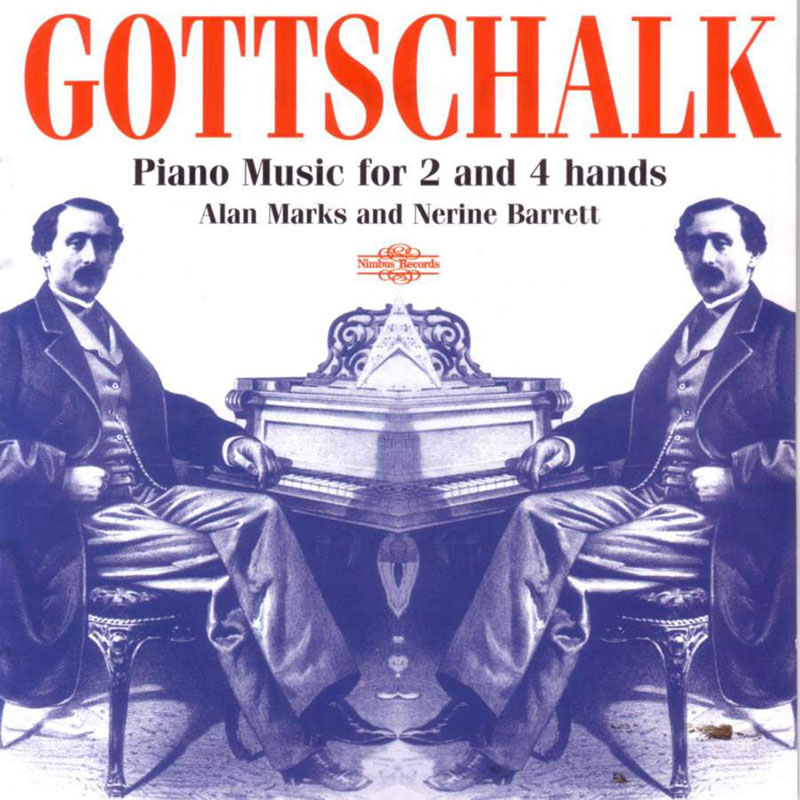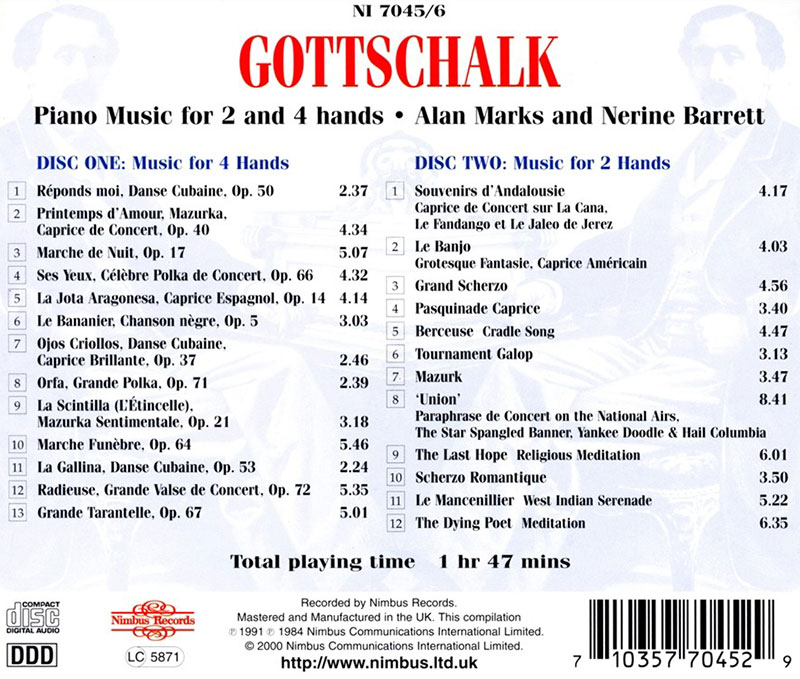Logowanie
Dziś nikt już tak genialnie nie jazzuje!
Bobby Hutcherson, Joe Sample
San Francisco
SHM-CD/SACD - NOWY FORMAT - DŻWIĘK TAK CZYSTY, JAK Z CZASU WIELKIEGO WYBUCHU!
Wayne Shorter, Freddie Hubbard, Herbie Hancock, Ron Carter, Elvin Jones
Speak no evil
UHQCD - dotknij Oryginału - MQA (Master Quality Authenticated)
Chesky! Niezmiennie perfekcyjny
Winylowy niezbędnik
ClearAudio
Double Matrix Professional - Sonic
najbardziej inteligentna i skuteczna pralka do płyt winylowych wszelkiego typu - całkowicie automatyczna
GOTTSCHALK, Alan Marks, Nerine Barrett
Piano music for 2 and 4 hands

- Disc One
1 Gottschalk (1829-1869), Réponds moi, Danse Cubaine, Op. 50 2.37
2 Printemps d'Amour, Mazurka, Caprice de Concert, Op. 40 4.34
3 Marche de Nuit, Op. 17 5.07
4 Ses Yeux, Cél?bre Polka de Concert, Op. 66 4.32
5 La Jota Aragonesa, Caprice Espagnol, Op. 14 4.14
6 Le Bananier, Chanson n?gre, Op. 5 3.03
7 Ojos Criollos, Danse Cubaine, Caprice Brillante, Op. 37 2.46
8 Orfa, Grande Polka, Op. 71 2.39
9 La Scintilla (L'Étincelle), Mazurka Sentimentale, Op. 21 3.18
10 Marche Fun?bre, Op. 64 5.46
11 La Gallina, Danse Cubaine, Op. 53 2.24
12 Radieuse, Grande Valse de Concert, Op. 72 5.35
13 Grande Tarantelle, Op. 67 5.01
Disc Two
1 Gottschalk (1829-1869), Souvenirs d'Andalousie Caprice de Concert sur La Cana, Le Fandango et Le Jaleo de Jerez 4.17
2 Le Banjo Grotesque Fantasie, Caprice Americain 4.03
3 Grand Scherzo 4.56
4 Pasquinade Caprice 3.40
5 Berceuse Cradle Song 4.47
6 Tournament Galop 3.13
7 Mazurk 3.47
8 'Union' Paraphrase de Concert on National Airs, The Star Spangled Banner, Yankee Doodle & Hail Columbia 8.41
9 The Last Hope Religious Meditation 6.01
10 Scherzo Romantique 3.50
11 Le Mancenillier West Indian Serenade 5.22
12 The Dying Poet Meditation 6.35
Disc One: recorded at Wyastone Leys, Monmouth June 11th & 12th 1990
Disc Two: recorded at Wyastone Leys, Monmouth.
- Alan Marks - piano
- Nerine Barrett - piano
- GOTTSCHALK
Louis Moreau Gottschalk, born on 8 May 1829, was a musical boulevardier of the Deep South. Always an exhibitionist, Gottschalk wrote his best music for himself to play on solo piano. Just as Liszt invented the 'Piano recital' in Europe, so did Gottschalk in the United States. "I was the first American pianist, not in stature, but in time," Gottschalk could quite truthfully say of himself.


































